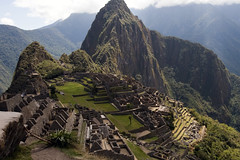AP World History Vocab: Chapter five Flashcards
Terms : Hide Images [1]
| 10391222825 | Chandragupta Maurya | was the founder of the Maurya Empire in ancient India. |  | 0 |
| 10391224977 | Ashoka Maurya | was an Indian emperor of the Maurya Dynasty, who ruled almost all of the Indian subcontinent from c. 268 to 232 BCE. |  | 1 |
| 10391227183 | Kalinga | any of several peoples inhabiting northern Luzon, Philippines. b : a member of such people. |  | 2 |
| 10391229617 | Rock and Pillar | a horst range, caused by movement on two parallel faults uplifting the area in between |  | 3 |
| 10391238791 | Edicts | an official order or proclamation issued by a person in authority. |  | 4 |
| 10391242111 | Gupta Dynasty | stretched across northern, central and parts of southern India between c. 320 and 550 CE. |  | 5 |
| 10391245716 | Vedas Upanishads | one of four genres of texts that together constitute each of the Vedas, the sacred scriptures of most Hindu traditions. |  | 6 |
| 10391247990 | Caste System | a class structure that is determined by birth |  | 7 |
| 10391252724 | Dharma and Karma | the belief that a person's actions in life will determine their fate in the next life |  | 8 |
| 10391255390 | Jainism | a nontheistic religion founded in India in the 6th century BC by the Jina Vardhamana Mahavira |  | 9 |
| 10391257206 | Ahimsa | the principle of nonviolence toward all living things. |  | 10 |
| 10391259758 | Siddhartha Gautama | The Buddha, or "enlightened one," was born Siddhartha Gautama to a large clan called the Shakyas in Lumbini |  | 11 |
| 10391271788 | Four Noble Truths | the four central beliefs containing the essence of Buddhist teaching. |  | 12 |
| 10391276684 | Ramayana | one of the two great epics of India, written in Sanskrit sometime after the Mahabharata and telling of Rama |  | 13 |
| 10391281269 | Mahabharata | an epic Sanskrit poem of India, dealing chiefly with the struggle between two rival families |  | 14 |
| 10391284249 | Arabic numerals | any of the numerals 0, 1, 2, 3, 4, 5, 6, 7, 8, and 9. |  | 15 |
| 10391288582 | Daoism | a Chinese philosophy based on the writings of Lao-tzu |  | 16 |
| 10391291645 | Confucius | a person who believes in the teachings of the Chinese philosopher Confucius |  | 17 |
| 10391295011 | Filial Piety | a virtue of respect for one's parents, elders, and ancestors. |  | 18 |
| 10391300636 | Legalism | excessive adherence to law or formula |  | 19 |
| 10391304567 | Qin Shihuangdi | was the founder of the Qin dynasty and was the first emperor of a unified China. |  | 20 |
| 10391309928 | Han Wudi | this is the Chinese word which in imperial history of China means "emperor" |  | 21 |
| 10391315384 | Civil Service Exam | are examinations implemented in various countries for recruitment and admission to the civil service. |  | 22 |
| 10391320570 | Pax Sinica | a historiographical term, modeled after the original phrase Pax Romana, applied to the period of peace in East Asia |  | 23 |
| 10391323968 | Silk Roads | an ancient network of trade routes, |  | 24 |
